Posts covered in this FAQ are:
Chlorinated water Issue on chlorinated water
Chlorine in tap water
Reverse osmosis Is RO worth it?
Hydroponic systems - are RO systems necessary?
Issue on chlorinated water edurink 3/ 21/ 06 @ 8:05 : How bad is it in hydroponics? I have a feeling that the lack of success in hydroponics, in many instances, is due to treated water, i.e. chlorinated water. Am I right?
Response: willard3 3/ 21/ 06 @ 10:03: Draw your hydro water @ least 48 hrs before you use it and let it sit in an open container with a bubbler.
My chlorine from a municipal system goes almost to zero from this treatment edurink 3/ 21/ 06 @ 16:52: willard3 - Thanks! For sometime, I've had some problems like slow growth, sick looking plants, uneven growth, etc. even if the ideal (textbook) conditions for plant growth have been met. Someone suggested that I use a reverse osmosis filter system because the water quality may have an effect on the plants. In another forum, mention was made, in passing, about chlorine. That could be it, I thought. I vaguely had the impression that the chlorine in chlorinated water disperses after a while when exposed to the air. You reinforced my thinking, thanks. Reverse osmosis is good but out of the question cause it's too expensive.
Along the same line, does deep well water have a similar effect, the issue of hard and soft water? Or deep well and surface water? willard3 3/ 22/ 06 @ 11:06:
snip
Along the same line, does deep well water have a similar effect, the issue of hard and soft water? Or deep well and surface water?
snip
Surface and well water mineral content depends strongly on local geologic conditions.....i.e., what kind of rock stores the water in a well or what kind of soil does the surface water come in contact with?
edurink on Sat, 3/25/ 06 @ 18:36:
willard3 - I also have observed that when starting seedlings, distilled water produces much healthier and bigger seedlings than whose watered using tap water from the municipal mains. Again, the culprit seems to be the chlorine. In the absence of distilled water, ordinary tap water that has been aerated, as you have suggested, I am sure will produce better seedlings. hank_mili 4/ 1/ 06 @ 19:21: To expand this discussion further do you think germination rates would increase if seeds were continuously exposed to aerated water (think NFT for seeds) than standing water during the seed soak?
Also, do seeds germinate better in total darkness?
jdog006 4/ 1/ 06 @ 23:52: I have a water softener that removes chlorine from the water throughout my house. It was a good investment. We do have reverse osmosis for drinking water but it would be difficult to get enough RO water for my hydro setup from it.
Water softeners make sense when you think about all the benefits (less soap, less wear on clothes, no deposits that build up in the shower, no buildup of minerals in your pipes or water heater, etc. etc).
I assume the majority of people use salt in their water softeners but the sodium is poison for plants (and it's not good for humans or the environment either). Potassium Chloride works just as well as salt in water softeners and plants love Potassium. Potassium Chloride does cost a few bucks more than salt but I don't mind paying a couple extra bucks for the benefit of my plants, my family and the environment.
Chlorine shouldn't be a concern for people using a good water softener and as long as you are using Potassium Chloride instead of salt, you should have good results.
edurink 4/ 4, 06 @ 5:39:
hank_mili, About seedling being continuously exposed to aerated water - I have reservations there as too much water can cause "damping off" that can wipe out the seedlings in a snap.
About starting seedlings in the dark, a number of articles have mentioned this. Although, I have not taken these seriously. I've germinated seedling under both conditions - light and dark. There seems to be no or little difference in seedling performance.
Chlorine in tap water
marshallwilson 7/ 25/ 05 @ 23:22: I am new to hydro. Doing an ebb and flow system. Is the chlorine in city water a problem and if so can it be safely eliminated using the products typically used in an aquarium?
Thanks
marshall
Response: hank_mili 7/ 26/ 05 @ 2:14: Fill a bucket/drum with tap water and throw in a vigorous bubbler. Run it for several days. The water should be relatively clear of chlorine by then.
kirk1977 7/6/05 @ 15:47: Thats what I do too
brainiac 8/8/05 @ 23:44: Make sure you actually have chlorine. (Named City) has been using chloramines since 1947, and there was a federal mandate to convert the largest cities in the USA to chloramines in 2000.
You can't get rid of chloramines with distillation, leaving the water sit, or even with a standard RO system.
The only way I know of is to use a 5 stage RO-deionizer system. There are also sulfide based chemicals that brewers use to get rid of it.
(Brainiac advises a Chloramines removal filter)
is RO worth it?
Wuss912 3/ 28/ 05 @ 20:40: I wanted to know if anyone thought RO was worth the trouble for growing hydroponically?
I know RO would help with having a minimal PPM @ the onset. but would it affect PH @ all?
thanks
Response: Jungle_Fever 3/29, 05 @ 23:48: Well, do a test. try your water and if I remember correctly I believe the big blue jugs for water dispensers are ro"ed water .try that, 4 or 5 dollars I think. Maybe someone else can get into more depth on this subject though.
lifestarter on Wed, 3/30, 05 @ 16:38: Well 30 bottles of RO or Distilled water @ 99cents a gallon is just under 30 dollars before taxes. This is good for small amounts. I suggest installing your own. I plan to do so for the entire house what with all the threat of terrorists contaminating drinking water and all. It can be done for around 100 bucks before shipping if you look hard enough.
hank_mili on Thu, 3/31/ 05 @ 0:03: Correct me if I'm wrong but for every 5-15 gal of RO water recovered 100 gal of water is processed. So it's not efficient in that sense.
Unless there is potentially dangerous contaminates in your source water; I don't see the need for RO water for hydroponics since your are going to add nitrates and calcium to your RO water that RO took out anyway. Wuss912 3/31/ 05 @ 0:47: I dont think RO is that wasteful of water...
I was just wondering if anyone thought it would help with the growing of plants.
Hydro4me on Fri, 4/1 05 @ 12:51: I agree with Hank, you will just be adding it all back in, calcium, iron, etc...Tap water works just fine for small scale hydro gardening. The problem in treated water is the chloromine and chlorine used to treat it @ municipal facilities. I just use water from the tub to fill my systems. The pH runs alkaline, so I have to bring it down to 6.0-7.0 with acid or lemon juice. RO systems are a big initial investment, then you have to replace filters and membranes when the PPM's creep up again after filling up with sediments.
Posted by: markapp (My Page) on Fri, Apr 8, 05 @ 15:34
A lot will depend on what the water is like to start with. in my area on wells the biggest impurities are magnesium and calcium which are just nutrients anyway. If you got a lot of plain salt you may need it. I have noticed garden and container plants here like my rain water better but that may be due to more carbon oxygen and nitrogen being in it. If the water is so hard you don't have room for nutrients you may need to treat. sometimes adjusting ph with hcl and filtering can remove some impurities. Boiling briefly and allowing to cool may also sludge out some impurities.RO is overhyped by promoters it does waste tremendous amounts of flush water and in the end is less effective and just as costly as distillation in most situations. here is the rub with ro it works great when filters are new but as filters age it gets less and less effective so you really need to moniter with tds meter and pick a threshold of filth to replace filters @. If you have organic pollutants such as petrochemical or pesticide residues activated charcoal is about the best filter and is included in most ro paks. For drinking water distillation is really best as it delivers clean water every time irregardless of maintenance. If maintenance is neglected it quits working but it is much less likely to deliver partially purified water.If you are on municipal water most systems will give you a free analysis of content that is as tested @ water works prior to exposure to the distribution network. Most chlorine will gas out if you just draw the water a day or 2 before using it and you don't want to use it cold generally anyway so it works out fine.Chlorine by the way is a required trace nutient for plants. Another option much cheaper than ro is to capture rain water it is usually plenty good for plants.
Posted by: markapp on Fri, Apr 8, 05 @ 17:02
forgot to adress ph purifying will bring ph to about 7 both ro and distillation. rain water may vary but due to disolved gases should be slightly acidic as comapred to purified water so again it depends on what you start with if it would change ph.
hydroponic systems - are RO systems necessary?
dimejaguar 7/ 21/ 04 @ 12:29: I am about to start growing my own vegetables and was wondering this question. I know that water quality is a must if I am correct. So by default should I buy an RO system to go with my hydro system?
Response: DHershey 7/ 21/ 04 @ 17:35: Get a water quality analysis first to see if your water is really poor quality. You may not need a RO system.
If you use a municipal water source, the water company should be able to provide you with a detailed analysis.
amar z5 IA 8/ 4, 04 @ 19:13: I think you can get some info from your water company. If you mix your own fertilizers you can compensate for the minerals that are present in various amounts.


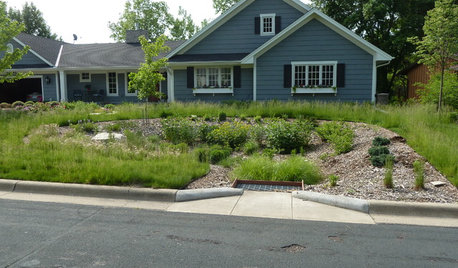
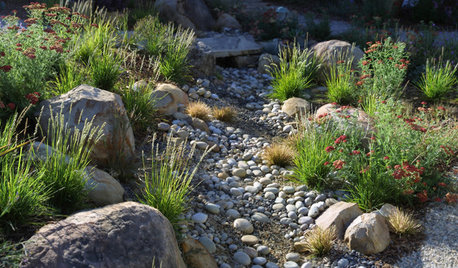
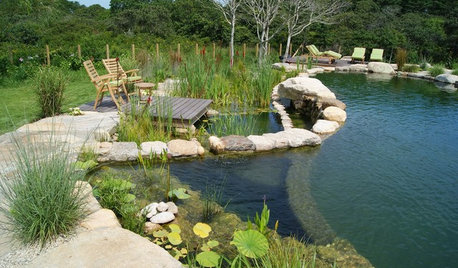
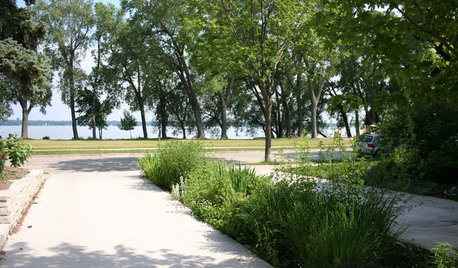


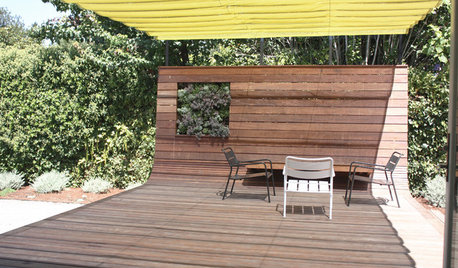
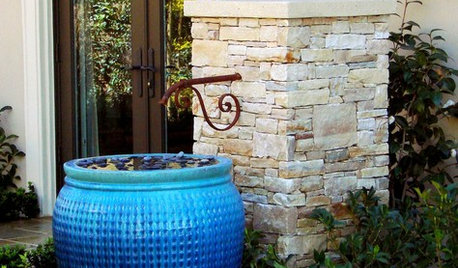



Related Discussions
Pulsating Water and Water Quality from Plumbing
Q
Water Quality and Hydroponics/Gardening
Q
nft water quality issues
Q
Water Quality and Succulents
Q